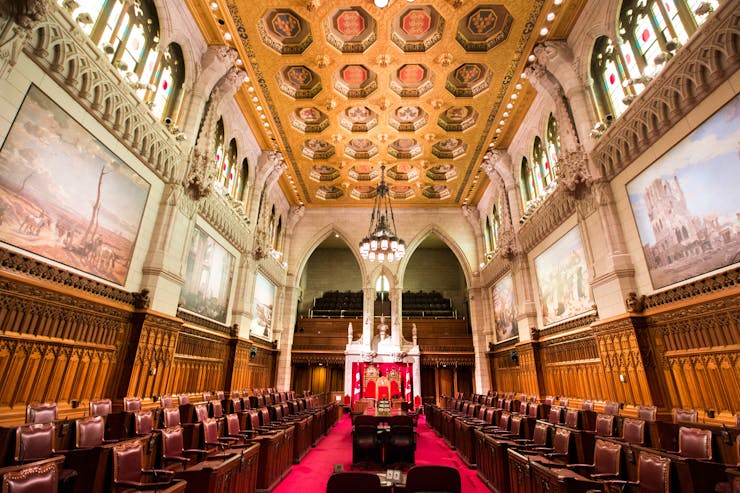Less than a month before the Senate is scheduled to hold a third and final vote on the Cannabis Act, the proposed legislation is facing renewed opposition from a variety of sources.
The Senate Committee on Aboriginal Peoples has called for a year-long delay to legalization.
In a report introduced May 2, the Senate’s Committee on Legal and Constitutional Affairs takes issue with a provision in Bill C-45 that allows individuals to grow as many as four cannabis plants at home. The committee recommended a prohibition on home cultivation altogether — Quebec and Manitoba have already decided to take that step — and called for a limit on the amount of cannabis individuals can possess at home. The proposed legislation doesn’t set any limit on that.
Meanwhile, Justin Trudeau’s promise to legalize recreational cannabis by this summer is being challenged by the Committee on Aboriginal Peoples, which has called for a year-long delay to legalization to ensure that the needs of Indigenous communities are met.
Chastising the federal government for failing to consult with the Indigenous population in a meaningful way before drafting the proposed legislation, the Aboriginal Peoples committee called for a revised formula to share cannabis tax revenue with First Nations, as well as provisions giving Indigenous communities the right to restrict the sale and/or possession of cannabis on their lands.
Conservative senators, who generally vote in lockstep on legislation, have been vocal in their opposition to the bill.
In addition, the committee emphasized the need to establish public education material for Indigenous Canadians and to boost funding for mental health and addiction programs. The committee also said a fifth of cannabis production licenses should be given to companies on lands governed by Indigenous communities.
Also this week, the Committee on National Security and Defence issued a report urging the federal government to reach an agreement with US authorities about any consequences Canadian travellers might face when they cross the border after legalization of recreational cannabis here.
Tony Dean, an independent senator who is sponsoring Bill C-45 in the Senate, attributes much of the opposition to partisan politics.
“There has been political posturing since Day One. Conservatives on the Committee on Legal and Constitutional Affairs are determined to reduce the scope of the bill or delay it,” he told Leafly.
Last fall Conservative Party leader Andrew Scheer told La Presse Canadienne that Senate Conservatives were “focused on the goal” of “blocking” C-45, and would use “all the democratic tools” to do so.
Conservative senators, who generally vote in lockstep on legislation, have been vocal in their opposition to the bill.
In March, Senator Pierre-Hughes Boisvenu went as far as calling the bill “a piece of shit” that wouldn’t protect people or “exclude organized crime.” He said the bill had been written “very badly” and added that it would be “a very good exercise” to rewrite it.
Other Conservative senators dismissed the bill too, saying it would endanger young people, increase smoking rates, make policing difficult, and do little to curb sales of cannabis on the black market.
Shop highly rated dispensaries near you
Showing you dispensaries nearTo prevent the bill from being defeated in the second reading in March, Trudeau urged Independent and Liberal senators who were on the road to return for the vote. In the end, the measure passed.
The Senate Committee on Social Affairs, Science and Technology will study the Cannabis Act until the end of May.
“I think the Conservatives are looking at this issue through the lens of the next election. But there is a point where you must put politics aside. Put on your senator hat and do your job. Behave like an adult,” said Dean. “I haven’t seen that yet.”
The Senate Committee on Social Affairs, Science and Technology will study the Cannabis Act until the end of May.
If the bill is amended in the Senate, it then returns to the House of Commons. A disagreement between the upper and lower chambers would delay passage of the bill.
“This Act is the product of that democratic mandate and two years of extensive public consultation Coast to Coast,” John Fowler, CEO of Ontario-based cannabis producer Supreme Cannabis, told Leafly. I’m confident Canadians and our governments are ready for legalization.”





